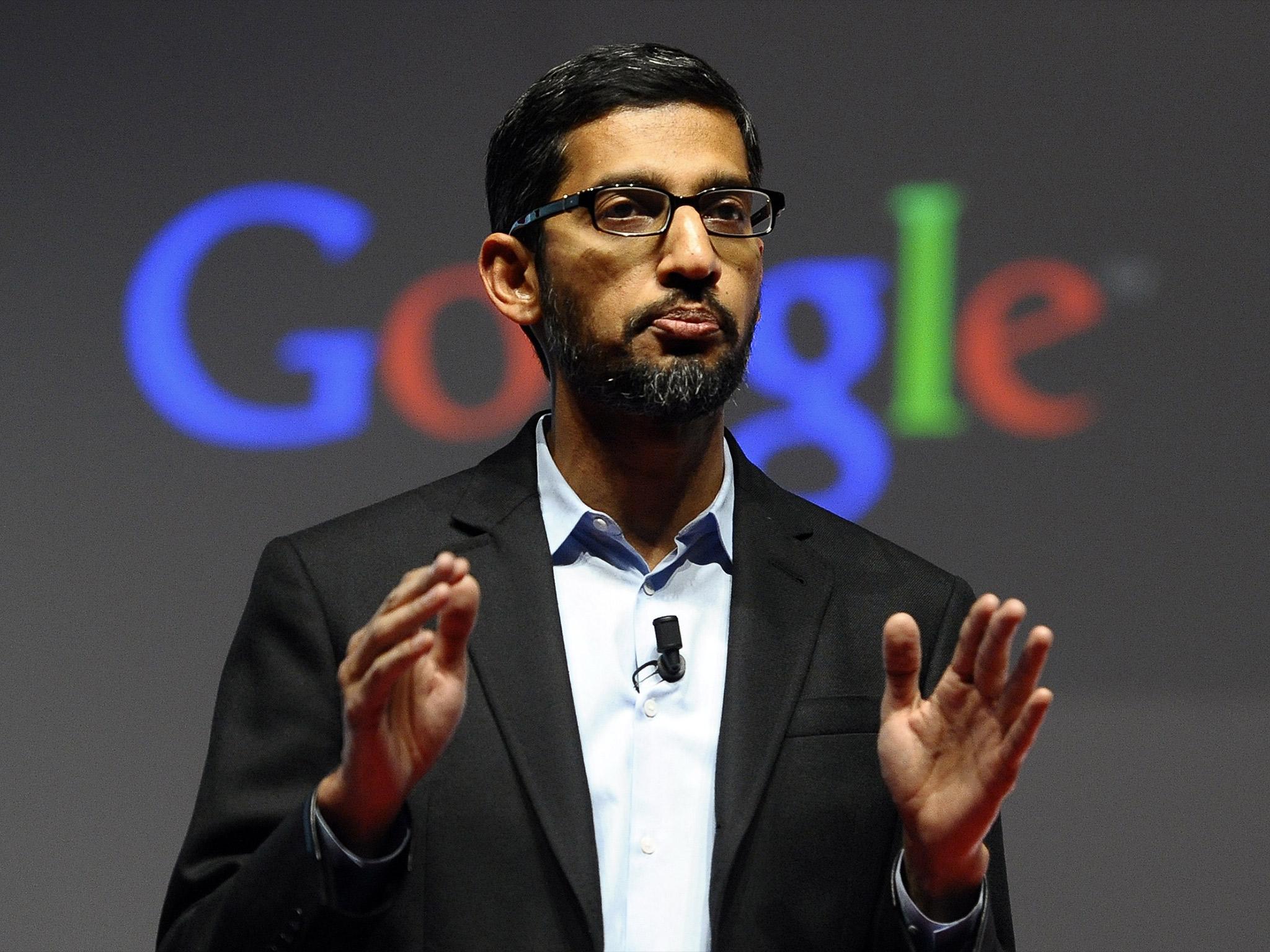Google joins Apple in refusing to hack into phones to give US government access to terrorist’s messages
The search giant’s CEO, Sundar Pichai, echoed Tim Cook’s reasoning in arguing that the case could be a 'troubling precedent'

Google appears to have given its backing to Apple in its fight against an order requiring it to hack into a terrorist’s phone.
Apple was told this week that it has to create new software to weaken the security of iPhones so that the FBI could read the messages contained on a handset owned by one of the San Bernardino killers. But the company replied that doing so would leave people at risk, and said that it would fight the order.
Now Google’s CEO, Sundar Pichai, has backed the hugely controversial order. Unlocking the phone would create a dangerous precedent, he argued, though he said only that hacking “could” compromise privacy.
“Important post by Tim Cook,” he wrote, in reference to an impassioned letter that the Apple CEO published in the wake of the ruling. “Forcing companies to enable hacking could compromise users’ privacy.
“We know that law enforcement and intelligence agencies face significant challenges in protecting the public against crime and terrorism.
“We build secure products to keep your information safe and we give law enforcement access to data based on valid legal orders. But that’s wholly different than requiring companies to enable hacking of customer devices & data. Could be a troubling precedent.”
Mr Pichai’s tweets ended with a messaging saying that he was “Looking forward to a thoughtful and open discussion on this important issue”.
The tweets came after people including Edward Snowden had said that Google remaining silent made it look as if the company supported the FBI.
“This is the most important tech case in a decade,” he tweeted. “Silence means Google picked a side, but it's not the public's.”
But Google’s public support of Apple could also prove controversial. The company has already been criticised by people including US politicians such as Senator Tom Cotton of Arkansas, who said in a statement that “Apple chose to protect a dead Isis terrorist’s privacy over the security of the American people.”
Join our commenting forum
Join thought-provoking conversations, follow other Independent readers and see their replies
Comments
Bookmark popover
Removed from bookmarks